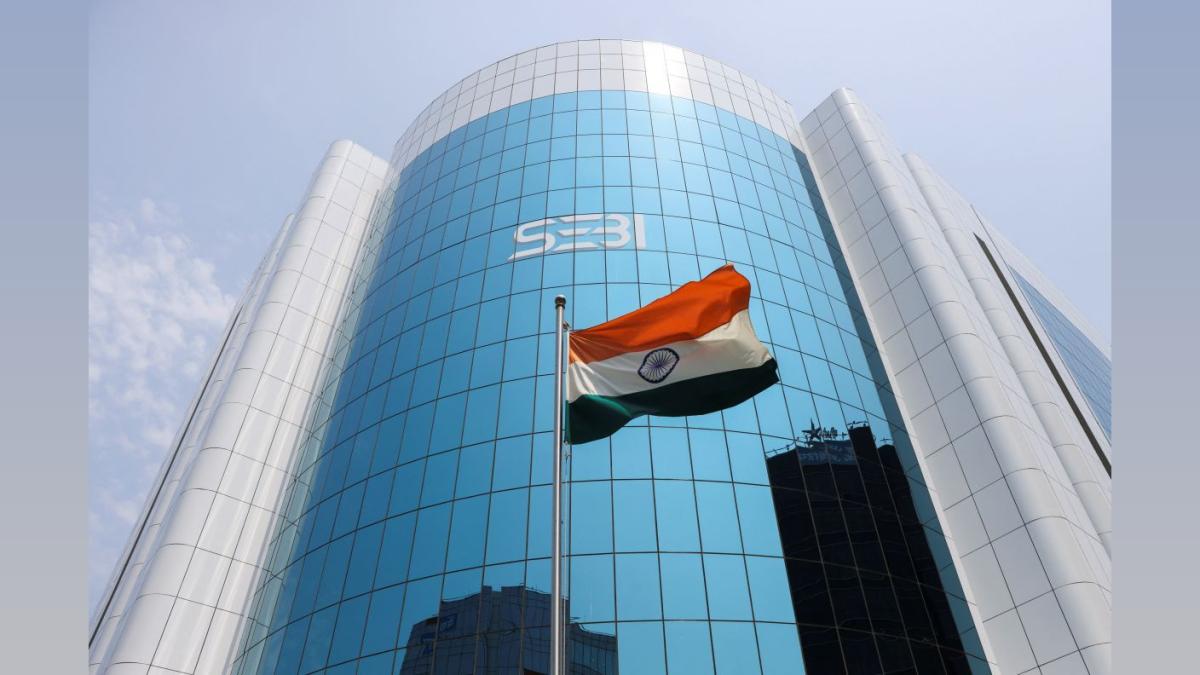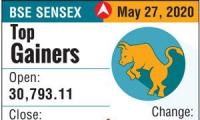Sebi Proposes Hedging for REITs, InvITs Using Derivatives
Sebi proposes allowing REITs, InvITs and SM REITs to use interest rate derivatives for hedging risk, along with other measures to enhance investor protection and ease of doing business.

Photograph: Francis Mascarenhas/Reuters
New Delhi, Nov 3 (PTI) Markets regulator Sebi has proposed allowing Real Estate Investment Trusts (REITs), Small and Medium REITs (SM REITs) and Infrastructure Investment Trusts (InvITs) to use interest rate derivatives for hedging risk.
Also, the regulator has suggested approving locked-in units for REITs and InvITs to be transferred among sponsors and their groups, similar to rules for promoters in listed companies, to help sponsors manage their holdings without compromising "skin in the game".
Additionally, Sebi has suggested permitting fixed deposits to be considered as cash equivalents when calculating leverage for REITs and InvITs, clarifying credit rating requirements for REIT and InvIT borrowings, and setting a timeline for filling vacancies on their boards and expanding the asset base for REITs and SM REITs.
The regulator has also proposed to permit REITs to invest in liquid mutual funds.
It has suggested measures to facilitate ease of doing business for REITs and InvITs, along with investors' protection.
According to its consultation paper, Sebi is considering allowing REITs and InvITs to hedge against interest rate fluctuations by using derivatives like interest rate swaps.
This could help stabilise cash flows, reduce risks, and protect unitholder interests, especially for long-term infrastructure projects.
It is also proposed to define "Common Infrastructure" for REIT regulations.
To enhance business flexibility for REITs, it has been proposed to clarify that facilities like power plants, heating/cooling systems, water treatment, and waste treatment plants -- serving one or more REIT assets -- will qualify as "common infrastructure" under REIT rules.
This applies even if these facilities are not located within a single project due to their technical requirements. These facilities should supply and be used exclusively by REIT assets. For power plants, however, any excess power can be sold to the state utility/grid as per regulations, with any credits or payments going towards the benefit of REIT assets.
To improve transparency, it has been proposed to amend the governance norms for quarterly reporting of InvITs.
Currently, quarterly results for the investment manager and its business segments are presented to the investment manager's board, but there is no direct requirement for InvITs to report their performance.
The proposed amendment would clarify that quarterly results should specifically reflect the performance of the InvITs themselves, not just the investment managers.
This change aligns InvIT regulations with REIT regulations, where the focus is on the quarterly results of the REIT itself.
Also, it has been suggested to align the composition of NRCs in REIT and InvIT managers with listed companies under the LODR regulations.
Currently, all NRC members for REITs and InvITs must be independent directors. The proposal allows a mix of independent and non-executive directors, similar to listed companies.
To enhance investors' protection, Sebi has suggested reviewing conditions for InvITs to borrow beyond the 49 per cent limit, assessing REIT investments in unlisted equity shares and outlining the roles and responsibilities of trustees for REITs, InvITs, and SM REITs.
In a separate consultation paper, the regulator has proposed a regulatory framework for "restricted return InvITs" to provide infrastructure investors with predictable returns by setting limits on both upside gains and downside protection.
The proposed framework for restricted return InvITs is designed to provide investors with structured returns, capped at both minimum and maximum levels to offer stability.
Restricted return InvITs would include downside protection -- a minimum assured return -- and/or an upside restriction, a cap on returns -- depending on the arrangement.
These investments would be limited to sophisticated investors who meet high minimum investment thresholds, with each unit priced at a minimum of Rs 500 crore and total InvIT assets of at least Rs 50,000 crore.
Investors would be required to sign a waiver and undertaking form, acknowledging their understanding of the structured returns and risks involved, including the transfer of any excess returns to the sponsors.
This waiver should be submitted before purchase in both primary and secondary markets, with compliance overseen by merchant bankers or brokers.
The Securities and Exchange Board of India (Sebi) has sought public comments on both consultation papers by November 13.
Also, the regulator has suggested approving locked-in units for REITs and InvITs to be transferred among sponsors and their groups, similar to rules for promoters in listed companies, to help sponsors manage their holdings without compromising "skin in the game".
Additionally, Sebi has suggested permitting fixed deposits to be considered as cash equivalents when calculating leverage for REITs and InvITs, clarifying credit rating requirements for REIT and InvIT borrowings, and setting a timeline for filling vacancies on their boards and expanding the asset base for REITs and SM REITs.
The regulator has also proposed to permit REITs to invest in liquid mutual funds.
It has suggested measures to facilitate ease of doing business for REITs and InvITs, along with investors' protection.
According to its consultation paper, Sebi is considering allowing REITs and InvITs to hedge against interest rate fluctuations by using derivatives like interest rate swaps.
This could help stabilise cash flows, reduce risks, and protect unitholder interests, especially for long-term infrastructure projects.
It is also proposed to define "Common Infrastructure" for REIT regulations.
To enhance business flexibility for REITs, it has been proposed to clarify that facilities like power plants, heating/cooling systems, water treatment, and waste treatment plants -- serving one or more REIT assets -- will qualify as "common infrastructure" under REIT rules.
This applies even if these facilities are not located within a single project due to their technical requirements. These facilities should supply and be used exclusively by REIT assets. For power plants, however, any excess power can be sold to the state utility/grid as per regulations, with any credits or payments going towards the benefit of REIT assets.
To improve transparency, it has been proposed to amend the governance norms for quarterly reporting of InvITs.
Currently, quarterly results for the investment manager and its business segments are presented to the investment manager's board, but there is no direct requirement for InvITs to report their performance.
The proposed amendment would clarify that quarterly results should specifically reflect the performance of the InvITs themselves, not just the investment managers.
This change aligns InvIT regulations with REIT regulations, where the focus is on the quarterly results of the REIT itself.
Also, it has been suggested to align the composition of NRCs in REIT and InvIT managers with listed companies under the LODR regulations.
Currently, all NRC members for REITs and InvITs must be independent directors. The proposal allows a mix of independent and non-executive directors, similar to listed companies.
To enhance investors' protection, Sebi has suggested reviewing conditions for InvITs to borrow beyond the 49 per cent limit, assessing REIT investments in unlisted equity shares and outlining the roles and responsibilities of trustees for REITs, InvITs, and SM REITs.
In a separate consultation paper, the regulator has proposed a regulatory framework for "restricted return InvITs" to provide infrastructure investors with predictable returns by setting limits on both upside gains and downside protection.
The proposed framework for restricted return InvITs is designed to provide investors with structured returns, capped at both minimum and maximum levels to offer stability.
Restricted return InvITs would include downside protection -- a minimum assured return -- and/or an upside restriction, a cap on returns -- depending on the arrangement.
These investments would be limited to sophisticated investors who meet high minimum investment thresholds, with each unit priced at a minimum of Rs 500 crore and total InvIT assets of at least Rs 50,000 crore.
Investors would be required to sign a waiver and undertaking form, acknowledging their understanding of the structured returns and risks involved, including the transfer of any excess returns to the sponsors.
This waiver should be submitted before purchase in both primary and secondary markets, with compliance overseen by merchant bankers or brokers.
The Securities and Exchange Board of India (Sebi) has sought public comments on both consultation papers by November 13.
You May Like To Read
TODAY'S MOST TRADED COMPANIES
- Company Name
- Price
- Volume
- Vodafone-Idea
- 11.31 (+ 1.53)
- 75187268
- Shree-Digvijay
- 90.20 (+ 0.93)
- 66773161
- Spright-Agro
- 0.70 ( -1.41)
- 38178451
- Meesho-L
- 235.50 (+ 8.85)
- 32198735
- Welcure-Drugs-and
- 0.42 ( -4.55)
- 31414819






